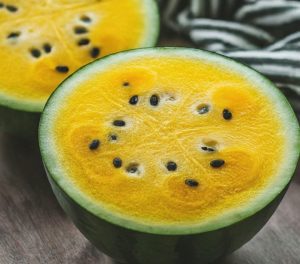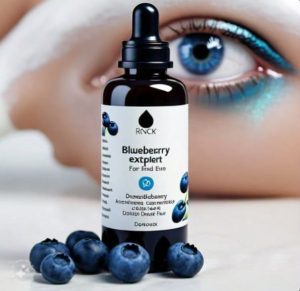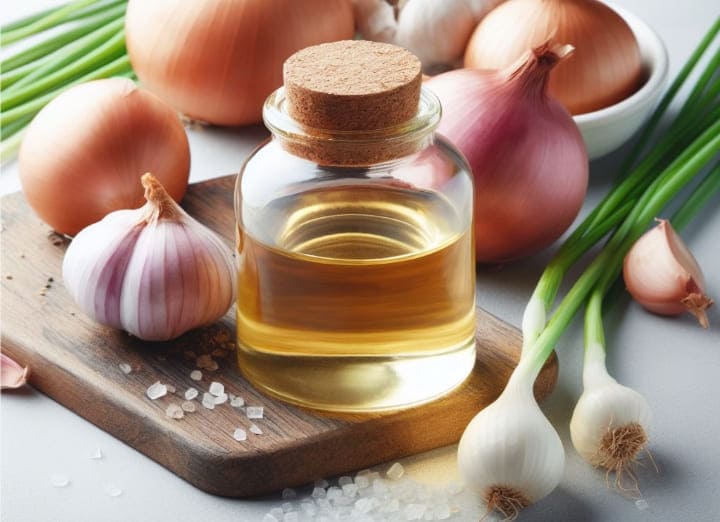
Black radish is a root vegetable that belongs to the Brassicaceae family. With its distinct black skin and crisp white flesh, black radish not only adds a unique flavor to culinary dishes but also offers a plethora of skin benefits.
Packed with essential nutrients and antioxidants, black radish can help improve the overall health and appearance of your skin.
In this article, we will explore the various skin benefits of black radish and provide insights on how to incorporate this powerhouse vegetable into your skincare routine.
1. Anti-Aging Properties Benefits
One of the key benefits of black radish for the skin is its anti-aging properties. Black radish is rich in vitamin C, which is a potent antioxidant known for its ability to neutralize free radicals and protect the skin from oxidative stress.
Vitamin C also plays a vital role in collagen production, a protein that keeps the skin firm and youthful. Additionally, black radish contains anthocyanins, compounds that help improve blood circulation, promote cell regeneration, and reduce the appearance of wrinkles and fine lines.
To optimize the anti-aging benefits of black radish, consider incorporating it into your diet by adding it to salads, stir-fries, or juicing it for a refreshing beverage. You can also create a homemade face mask by combining grated black radish with honey and applying it to your skin for 15-20 minutes before rinsing off with warm water.
Also Checkout:
- Benefits of Radish for Liver
- Benefits Of White Radish Leaves
- Benefits of Radishes During Pregnancy
- Benefits of Radish Salad and Recipes
- Skin Benefits of Black Radish
- Benefits Of Black Radish
- Benefits and Uses of Radish Water
- White Radish Soup: Health Benefits and Recipes
- Benefits of Korean Pickled
2. Skin Brightening and Even Tone
Black radish contains natural skin-brightening properties that can help improve uneven skin tone and promote a radiant complexion. This is due to the presence of vitamin C and compounds called glucosinolates, which have been found to inhibit the production of melanin, the pigment responsible for dark spots and hyperpigmentation.
To optimize the skin-brightening benefits of black radish, consider using it as a natural toner. Extract the juice from grated black radish and apply it to your face using a cotton pad. Leave it on for a few minutes before rinsing off with water. Regular use can help fade dark spots, even out skin tone, and reveal a brighter complexion.
3. Acne Treatment and Prevention
Black radish possesses antibacterial and anti-inflammatory properties that make it an effective natural remedy for acne treatment and prevention. It contains sulfur compounds, such as glucosinolates and isothiocyanates, which have been shown to inhibit the growth of acne-causing bacteria and reduce inflammation in the skin.
To optimize the acne-fighting benefits of black radish, consider incorporating it into your skincare routine as a spot treatment. Grate a small amount of black radish and apply it directly to the affected area. Leave it on for 10-15 minutes before rinsing off with water. The antibacterial properties of black radish can help clear up existing acne and prevent future breakouts.
4. Hydration and Moisturization
Black radish is a hydrating vegetable that can help replenish moisture in the skin and improve overall hydration levels. It contains a high water content, which helps maintain the skin’s natural moisture barrier and prevents dryness and dehydration. Additionally, black radish is rich in minerals like potassium and magnesium, which play a crucial role in retaining moisture and promoting healthy skin function.
To optimize the hydration benefits of black radish, consider using it as a key ingredient in homemade face masks or moisturizers. Mix grated black radish with natural moisturizing ingredients like aloe vera gel, cucumber, or yogurt to create a hydrating and nourishing skincare treatment. Apply it to your skin and leave it on for 15-20 minutes before rinsing off with water.
5. Detoxification and Cleansing
Black radish is known for its detoxifying and cleansing properties, making it an excellent addition to your skincare routine. It contains compounds like glucosinolates and isothiocyanates, which support the liver’s detoxification process and help eliminate toxins from the body. By promoting internal detoxification, black radish can contribute to clearer and healthier-looking skin.
To optimize the detoxifying benefits of black radish, consider consuming it as part of a balanced diet or incorporating it into detoxifying juices or smoothies. You can also create a detoxifying face mask by combining grated black radish with clay or activated charcoal. Apply the mask to your face and let it sit for 10-15 minutes before rinsing off with water. This will help draw out impurities and leave your skin feeling refreshed and revitalized.
Nutrients found in black radish that contribute to its skin benefits

Black radish is not only delicious but also packed with essential nutrients that offer numerous benefits for the skin. Let’s explore the key nutrients found in black radish and how they contribute to its skin benefits.
- Vitamin C: Black radish is a rich source of vitamin C, which is a powerful antioxidant. Vitamin C helps protect the skin from free radicals, which can cause premature aging and damage to the skin cells. It also plays a crucial role in collagen synthesis, promoting skin elasticity and reducing the appearance of wrinkles.
- Vitamin B complex: Black radish contains various B vitamins, including B1, B2, B3, B5, B6, folate, and biotin. These vitamins contribute to maintaining healthy skin by supporting cell regeneration and promoting a clear complexion. They also help in maintaining the skin’s moisture barrier, preventing dryness and improving overall skin health.
- Minerals: Black radish is a good source of minerals like potassium, calcium, and magnesium. These minerals help maintain the skin’s hydration levels and support proper functioning of skin cells. They also aid in detoxification, which is beneficial for achieving clear and radiant skin.
- Antioxidants: Black radish contains various antioxidants, such as anthocyanins, isothiocyanates, and flavonoids. These antioxidants help protect the skin from oxidative stress, reducing inflammation and improving overall skin health. They also contribute to a brighter complexion and can help even out skin tone.
- Fiber: Black radish is high in dietary fiber, which aids in digestion and promotes a healthy gut. A healthy gut microbiome is closely linked to skin health, as imbalances in the gut can lead to skin issues like acne and inflammation. By promoting good digestion, black radish indirectly supports healthy skin.
It’s important to note that while black radish can offer these skin benefits, it is always best to maintain a balanced diet and incorporate a variety of fruits and vegetables for optimal skin health. Additionally, individual results may vary, and it’s always a good idea to consult a healthcare professional or dermatologist if you have specific concerns about your skin.
How often should I incorporate black radish into my skincare routine to see noticeable results?
The frequency with which you should incorporate black radish into your skincare routine to see noticeable results will depend on your individual skin type and the specific skincare concerns you are trying to address. However, as a general guideline, you can use black radish in your skincare routine 2-3 times per week.
If you have sensitive skin, it is best to start by using black radish less frequently, such as once per week. You can gradually increase the frequency of use as your skin becomes more accustomed to it.
To see noticeable results from using black radish in your skincare routine, it is important to be consistent with your use. Try to use black radish-based products on a regular basis, even if you do not see results immediately. Over time, you should start to see an improvement in your skin’s appearance and texture.
Here are some tips for incorporating black radish into your skincare routine:
- Use a black radish face mask. Black radish face masks are a great way to deeply cleanse and purify the skin. To make a black radish face mask, simply grate a black radish and mix it with a little bit of water or yogurt. Apply the mask to your face and leave it on for 15-20 minutes. Rinse the mask off with warm water and pat your skin dry.
- Add black radish juice to your toner. Black radish juice can be added to your toner to help improve the skin’s tone and texture. To make a black radish toner, simply grate a black radish and add the juice to your favorite toner. Apply the toner to your face after cleansing and pat your skin dry.
- Use a black radish serum. Black radish serum is a great way to deliver the nutrients and antioxidants found in black radish directly to the skin. To use a black radish serum, simply apply a few drops to your face and neck after cleansing and toning. Massage the serum into your skin until it is fully absorbed.
If you have any specific skincare concerns, it is always best to consult with a dermatologist or other skincare professional. They can help you develop a skincare routine that is tailored to your individual needs.
Potential Side Effects of Black Radish for Skincare

Black radish is generally considered safe for topical use on the skin. However, some people may experience side effects, such as:
- Skin irritation: Black radish can cause skin irritation in some people, especially those with sensitive skin. If you experience any redness, itching, or burning after using black radish on your skin, discontinue use and consult with a dermatologist.
- Allergic reaction: Some people may be allergic to black radish. If you have a history of allergies to other members of the Brassicaceae family (such as broccoli, cauliflower, or cabbage), you may be more likely to experience an allergic reaction to black radish. Symptoms of an allergic reaction can include hives, swelling, difficulty breathing, and anaphylaxis. If you experience any symptoms of an allergic reaction after using black radish on your skin, seek medical attention immediately.
Precautions to Consider When Using Black Radish for Skincare
- Avoid using black radish on broken or irritated skin. Black radish can irritate broken or irritated skin, so it is important to avoid using it on these areas.
- Do a patch test before using black radish on your face. To do a patch test, apply a small amount of black radish to a small area of skin on your inner forearm. Cover the area with a bandage and leave it on for 24 hours. If you experience any redness, itching, or burning during this time, do not use black radish on your face.
- Use black radish in moderation. Black radish can be drying to the skin, so it is important to use it in moderation. If you have dry skin, you may want to use black radish only once or twice per week.
- Avoid using black radish if you are pregnant or breastfeeding. There is not enough research to determine whether black radish is safe to use during pregnancy or breastfeeding. Therefore, it is best to avoid using it during these times.
If you have any concerns about using black radish for skincare, it is always best to consult with a dermatologist or other skincare professional. They can help you determine if black radish is right for your skin type and help you develop a skincare routine that is tailored to your individual needs.
More Like This:
- Sweet Potato Chips: Benefits, Side Effects, & Recipes
- Health Benefits of Zucchini
- Benefits of Boiled Mango Leaves
- Chewing Mango Leaves: Benefits, Risks, and More
- 10 Health Benefits Of Mango and Guava Leaves
- Mango Leaves Water: Nutrition, Benefits, Side Effects
- Benefits of Mango Leaves for Face, Skin, and Hair
Related Posts
Learn more:







































